- The Godfather (1972)
- Roots (1977)
- Chinatown (1974)
- Rocky (1976)
- M*A*S*H (1970)
- Jaws (1975)
- Apocalypse Now (1979)
- The Black Stallion (1979)
- Papillon (1973)
- Network (1976)
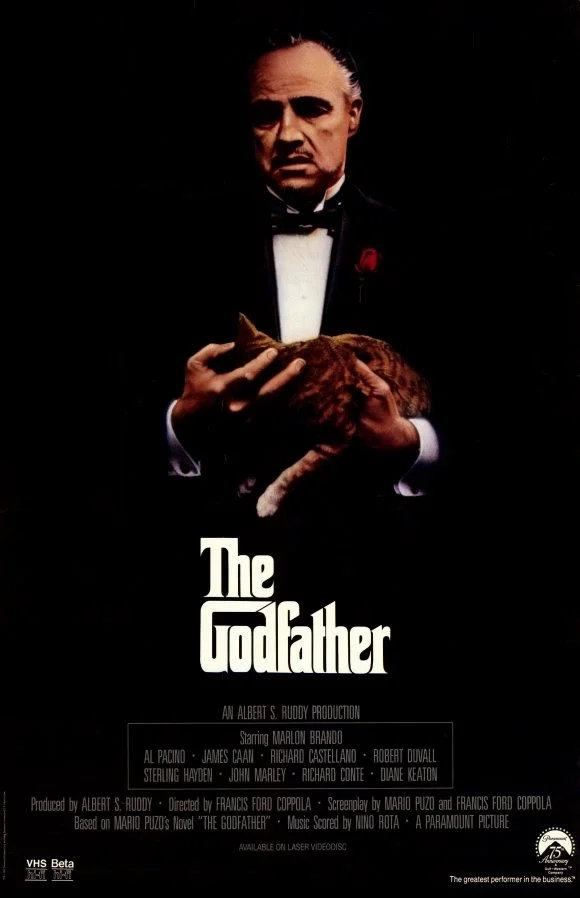 The Godfather is a masterpiece with many big-time actors. There are numerous classic scenes, lines, and
movie moments that make the whole thing unforgettable. Gordon Willis' cinematography is fantastic throughout,
and that's why he has the moniker: Prince of Darkness. Marlon Brando's Don Corleone is the most imitated
character of all time, and it's the beginning of Al Pacino's screen greatness.
The Godfather is a masterpiece with many big-time actors. There are numerous classic scenes, lines, and
movie moments that make the whole thing unforgettable. Gordon Willis' cinematography is fantastic throughout,
and that's why he has the moniker: Prince of Darkness. Marlon Brando's Don Corleone is the most imitated
character of all time, and it's the beginning of Al Pacino's screen greatness.
 If there's a definitive black American motion picture, it's this one. Starting out as a novel in 1976 by Alex
Haley about nine generations of African descendants, Roots was developed into a TV miniseries one year
later, and just about everybody in the country tuned in, setting viewership records. There's nothing like it.
If there's a definitive black American motion picture, it's this one. Starting out as a novel in 1976 by Alex
Haley about nine generations of African descendants, Roots was developed into a TV miniseries one year
later, and just about everybody in the country tuned in, setting viewership records. There's nothing like it.
 Chinatown is the quintessential neo-noir picture. Everything about the film is meticulously
crafted. It starts with Robert Towne's screenplay which is followed up with the exquisite cinematography and
an unparalleled cast of Jack Nicholson, Faye Dunaway, and John Huston. The final line "Forget it, Jake. It's
Chinatown" is unforgettable.
Chinatown is the quintessential neo-noir picture. Everything about the film is meticulously
crafted. It starts with Robert Towne's screenplay which is followed up with the exquisite cinematography and
an unparalleled cast of Jack Nicholson, Faye Dunaway, and John Huston. The final line "Forget it, Jake. It's
Chinatown" is unforgettable.
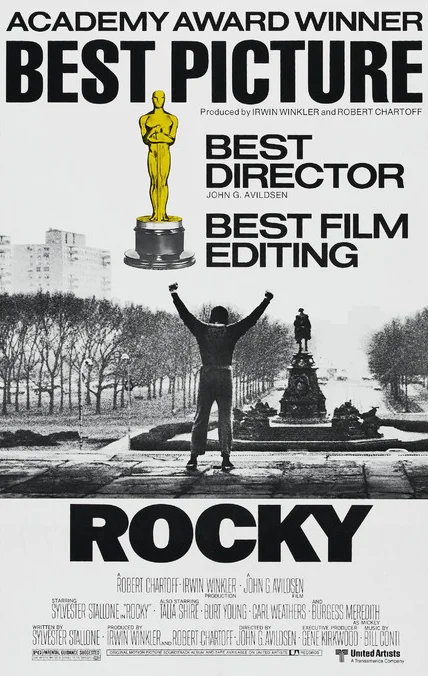 When people talk about the power of cinema, the best example is Rocky's training montage which is
uplifting, powerful, and unforgettable. Not just an outstanding boxing film, it also has the romance of a
lifetime with an all-time great ending. Terrific acting and direction transcend Rocky into a moving
motion picture for all people.
When people talk about the power of cinema, the best example is Rocky's training montage which is
uplifting, powerful, and unforgettable. Not just an outstanding boxing film, it also has the romance of a
lifetime with an all-time great ending. Terrific acting and direction transcend Rocky into a moving
motion picture for all people.
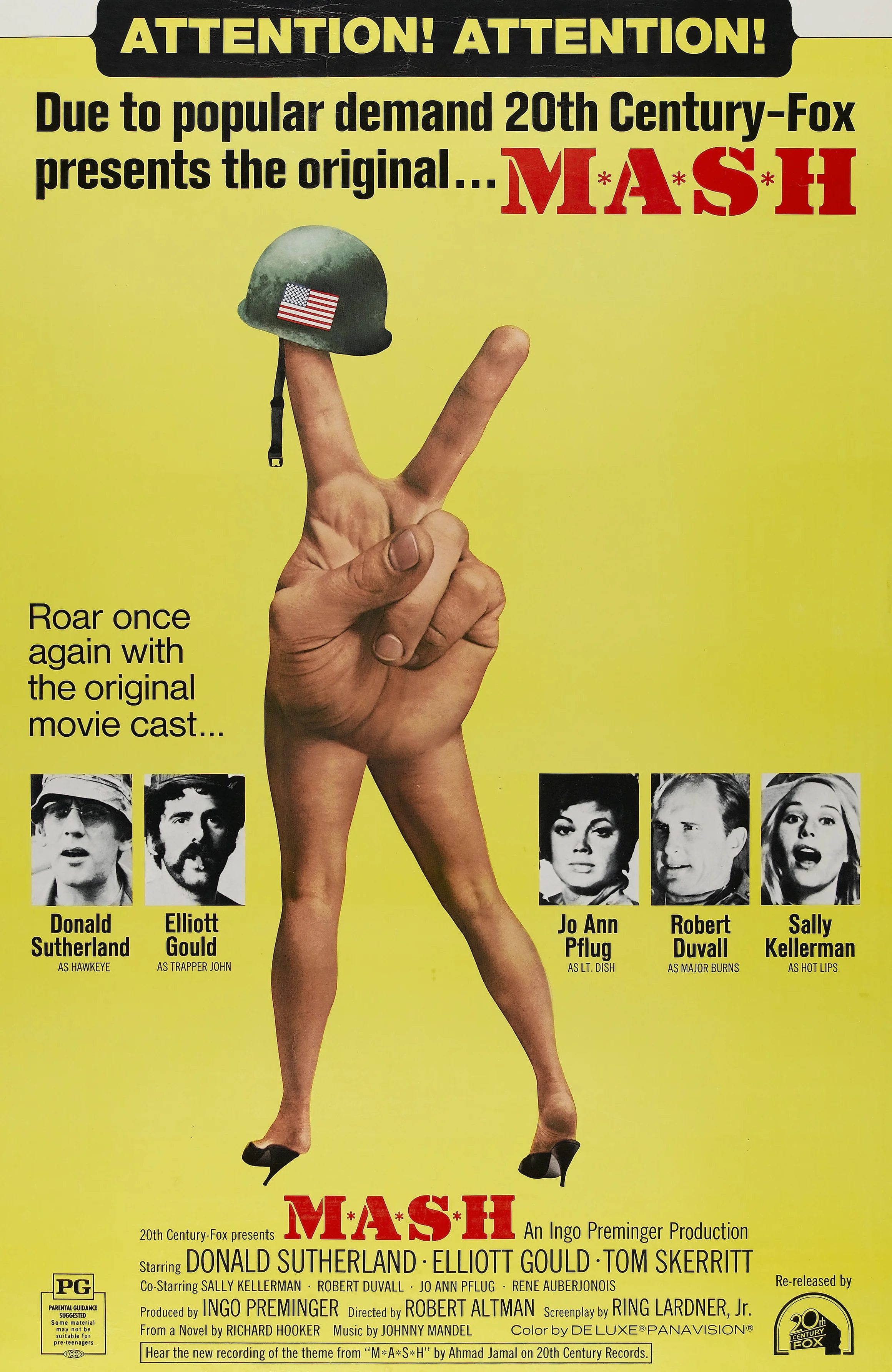 Full of brilliant writing and brilliant acting, M*A*S*H is the best and most intelligent comedy film
ever made. The ensemble cast is unbelievable, playing unforgettable characters. So are the scenes which are
so funny. No wonder why this one spawned a highly successful TV show.
Full of brilliant writing and brilliant acting, M*A*S*H is the best and most intelligent comedy film
ever made. The ensemble cast is unbelievable, playing unforgettable characters. So are the scenes which are
so funny. No wonder why this one spawned a highly successful TV show.
 Apart from setting the trend of summer blockbuster film releases, Jaws' greatest legacy is making people
think of the shark whenever they go for a swim in the ocean. Hence, Steven Spielberg was genius for not showing
it for a long while. When the shark finally comes, watch out!
Apart from setting the trend of summer blockbuster film releases, Jaws' greatest legacy is making people
think of the shark whenever they go for a swim in the ocean. Hence, Steven Spielberg was genius for not showing
it for a long while. When the shark finally comes, watch out!
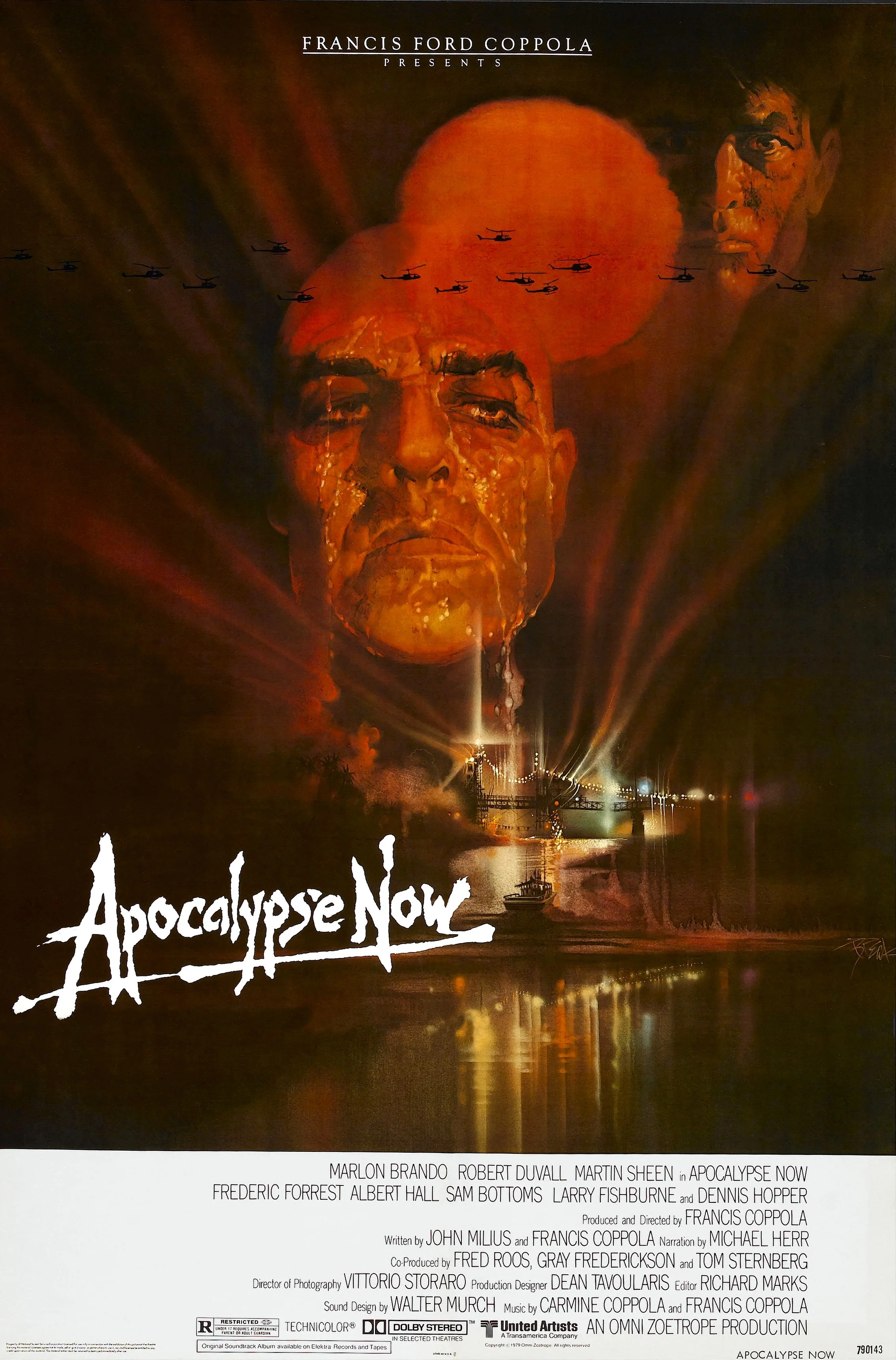 Full of iconic scenes and lines, Apocalypse Now is among the best of the decade as it tops madness with
more madness. That's what the movie is all about: the exploration of insanity in the journey toward the heart
of darkness. Making a case for the deterioration of Marlon Brando's mind may not be far-fetched, either.
Full of iconic scenes and lines, Apocalypse Now is among the best of the decade as it tops madness with
more madness. That's what the movie is all about: the exploration of insanity in the journey toward the heart
of darkness. Making a case for the deterioration of Marlon Brando's mind may not be far-fetched, either.
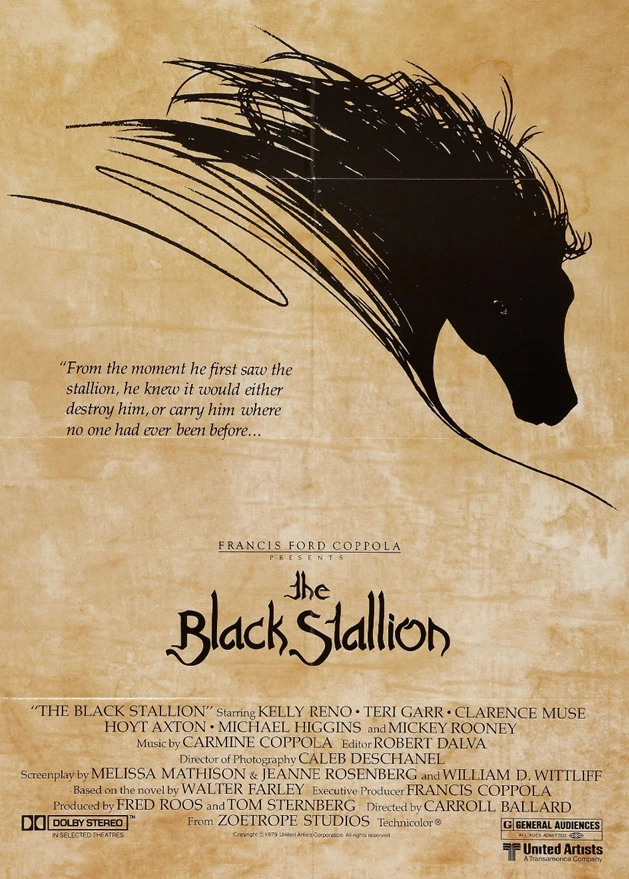 This is what I like: simple but powerful motion pictures. One of them is The Black Stallion.
There aren't many words spoken. It's all about the imagery. If there was a special Oscar given out specifically
for animals, Cass Ole would've gotten it as The Black. He's really the star of the show, but a lot of credit
has to go to Kelly Reno for giving a timeless performance. The kid was 12 years old and did most of the stunts.
This is what I like: simple but powerful motion pictures. One of them is The Black Stallion.
There aren't many words spoken. It's all about the imagery. If there was a special Oscar given out specifically
for animals, Cass Ole would've gotten it as The Black. He's really the star of the show, but a lot of credit
has to go to Kelly Reno for giving a timeless performance. The kid was 12 years old and did most of the stunts.
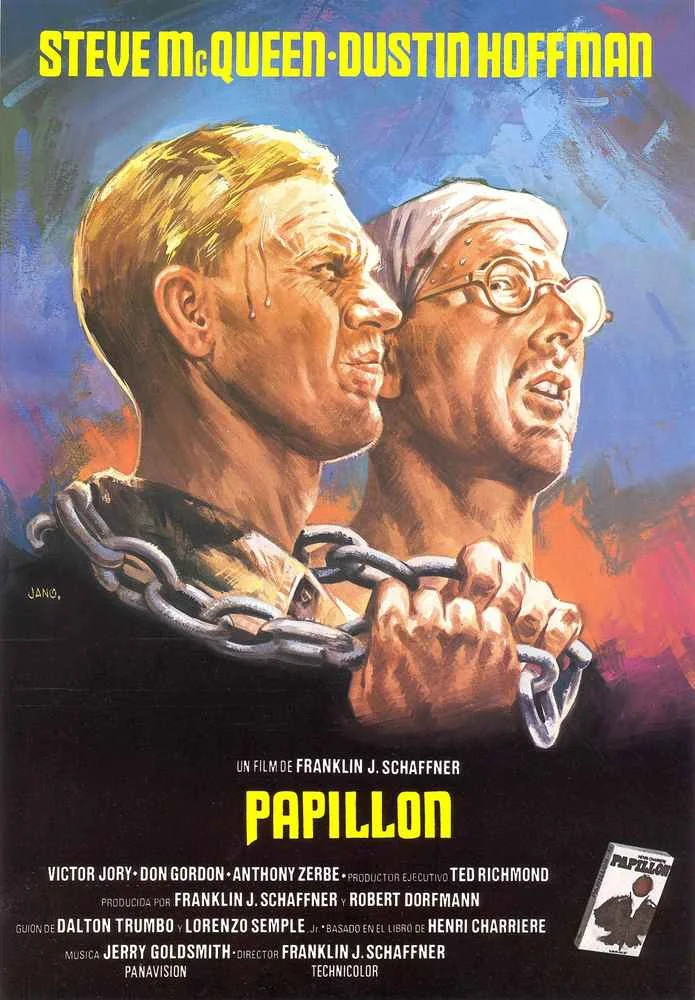 The back of the DVD cover for Papillon reads: "Not just a great escape. It was the greatest." Well, it
should've been: "Not just a great Steve McQueen performance. It was the greatest." The film's strengths lie in
Franklin Schaffner's direction and Dalton Trumbo's screenplay, both of them being the best in business.
The back of the DVD cover for Papillon reads: "Not just a great escape. It was the greatest." Well, it
should've been: "Not just a great Steve McQueen performance. It was the greatest." The film's strengths lie in
Franklin Schaffner's direction and Dalton Trumbo's screenplay, both of them being the best in business.
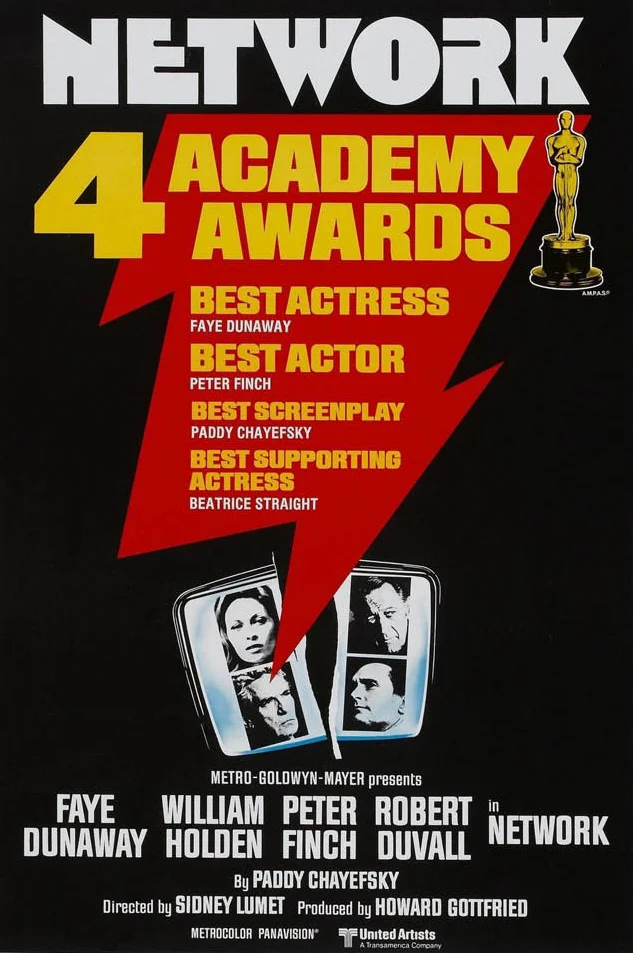 A brilliant satire about the world of television that's penned by the great Paddy Chayefsky, Network is
the one that Howard Beale famously yells: "I am as mad as hell, and I am not going to take this anymore!" The
quality of the acting is at its zenith with William Holden, Faye Dunaway, Peter Finch, Robert Duvall, and Ned
Beatty giving powerful performances.
A brilliant satire about the world of television that's penned by the great Paddy Chayefsky, Network is
the one that Howard Beale famously yells: "I am as mad as hell, and I am not going to take this anymore!" The
quality of the acting is at its zenith with William Holden, Faye Dunaway, Peter Finch, Robert Duvall, and Ned
Beatty giving powerful performances.